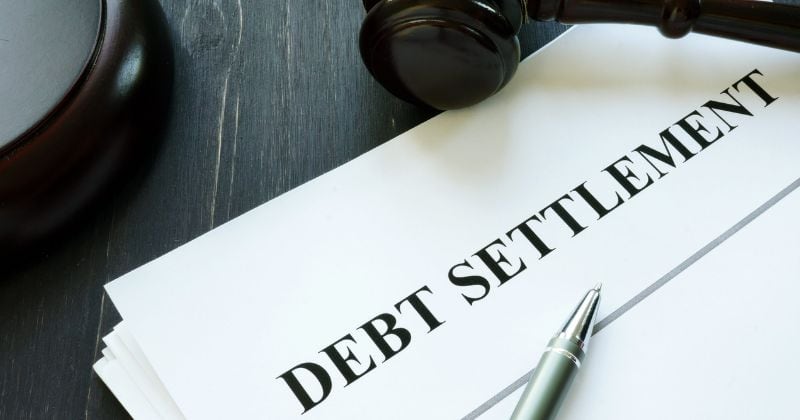What Is Debt Settlement and How Does It Work?

Debt settlement is a financial strategy that individuals or businesses use to reduce or eliminate outstanding debts by negotiating with creditors to pay less than the total amount owed. The goal of debt settlement is to reach a resolution where the debtor is no longer responsible for the full balance of their debt, often by paying a lump sum or agreeing to modified payment terms. This solution is particularly helpful for those facing overwhelming debt burdens they cannot afford to repay in full. In India, where unsecured debts like credit cards, personal loans, and other financial obligations are common, many individuals find themselves in a cycle of debt that becomes increasingly difficult to manage. Debt settlement can offer a way out of this cycle, and services like RupeeRelief are making this process more accessible and streamlined for people looking to regain financial stability. Debt settlement is essentially an agreement between the debtor and creditor to settle the outstanding amount for less than the full debt owed. This process typically involves negotiation between the two parties, and the debtor may either make a lump sum payment or set up a repayment plan to pay off the agreed reduced amount. This solution is often sought by people who are unable to meet their debt obligations or those who have fallen behind on payments. While it can provide a sense of relief by reducing the total debt, it does come with certain risks and considerations. The first step in the debt settlement process is assessing your current financial situation. This includes identifying the total amount of debt, the terms of each loan or credit line, and understanding the extent of financial difficulty you're facing. At this stage, it's helpful to seek assistance from debt relief services like RupeeRelief that specialize in managing unsecured debts. These services can guide you through the complexities of the debt settlement process and help you make informed decisions. Once your financial situation is assessed, the next step is to enter negotiations with creditors. Debt settlement usually requires you to negotiate directly with the creditor or work through a debt settlement service. The goal is to convince the creditor to accept a reduced payment as full settlement of the debt. Creditors are often willing to accept less than the full amount owed, especially when they realize that you are struggling financially. While creditors may be reluctant to forgive debt, they are often motivated by the prospect of recovering at least a portion of what is owed rather than risk the borrower defaulting completely. There are typically two ways that a debt settlement agreement is structured: Once a settlement amount is agreed upon, a formal debt settlement agreement is drawn up. This agreement will outline the specific terms of the settlement, including the amount to be paid and the payment schedule. It's important to thoroughly review this agreement before signing, ensuring that all details are clear and accurate. Once the agreed-upon amount is paid, the creditor will typically issue a statement confirming that the debt has been fully settled. This is a crucial step to prevent future misunderstandings or collections activity. Debt settlement can have an impact on your credit score. While the reduced settlement amount helps eliminate the debt, it may also be reported as “settled for less than the full balance” on your credit report. This notation can negatively affect your credit score in the short term. However, once the debt is cleared, you are no longer legally responsible for the amount that was settled, which means you can start rebuilding your credit over time. It's important to note that debt settlement is not the same as debt consolidation or bankruptcy, though they all aim to help individuals deal with overwhelming debt. Debt settlement specifically involves negotiating the reduction of debt with creditors, while debt consolidation combines multiple debts into one loan, and bankruptcy is a legal process that discharges certain debts altogether. The most obvious benefit of debt settlement is that it allows individuals to reduce their debt load. By negotiating with creditors, you may be able to have a portion of your debt forgiven, which can be a major relief for those overwhelmed by high-interest loans or credit card debt. Debt settlement offers a way to avoid filing for bankruptcy, which can have long-lasting negative consequences on your financial future. Bankruptcy typically remains on your credit report for years and can make it difficult to obtain credit in the future. Debt settlement can provide immediate financial relief by reducing monthly payments and enabling you to regain control of your financial situation. Services like RupeeRelief can help facilitate the settlement process, ensuring that you don't face the stress of dealing with creditors on your own. Successfully settling your debts means that you will eventually be debt-free, with no remaining obligations to creditors. This is a powerful motivator for many individuals seeking to rebuild their financial health and security. As mentioned earlier, one of the downsides of debt settlement is the potential impact on your credit score. While your debt will be cleared, the notation of “settled for less than the full balance” can make it harder to obtain new credit in the short term. In some cases, the amount of debt that is forgiven may be considered taxable income. This can lead to unexpected tax liabilities in the year the debt is settled. It's important to consult with a tax advisor to understand the potential tax implications of debt settlement. If debt settlement is not handled properly, there's a risk that individuals may fall back into debt after the settlement. It's important to develop a solid financial plan to prevent future debt problems and build a more stable financial foundation. Not all creditors will be willing to negotiate, especially if you are significantly behind on payments. Debt settlement is a negotiation, and creditors are under no obligation to accept your proposal. While debt settlement can be done independently, many individuals choose to seek professional help from services like RupeeRelief to guide them through the process. These services can help with negotiations, ensure compliance with legal regulations, and protect the debtor from unethical collection tactics. Moreover, they can help individuals avoid the risks associated with self-negotiation. RupeeRelief, for example, offers professional debt settlement services designed to assist clients in managing unsecured loans, credit card debts, and other financial burdens. Their team of experts can negotiate with creditors on your behalf, ensuring that you receive the best possible outcome without the stress and hassle of dealing with creditors directly. Debt settlement is a viable option for those facing overwhelming debt that they cannot pay off in full. By negotiating with creditors, individuals can reduce their debt load, avoid bankruptcy, and ultimately regain financial freedom. However, it's essential to understand the risks involved, including the potential impact on your credit score and the possibility of tax liabilities. For those seeking professional guidance, services like RupeeRelief can offer valuable support in navigating the debt settlement process, ensuring a smoother path to financial recovery.Understanding Debt Settlement
How Debt Settlement Works
1. Initial Assessment
2. Negotiation with Creditors
3. Lump Sum Payment or Repayment Plan
4. Debt Settlement Agreement
5. Debt Clearance and Impact on Credit Score
Advantages of Debt Settlement
1. Reduced Debt Amount
2. Avoiding Bankruptcy
3. Financial Relief
4. Debt-Free Future
Challenges of Debt Settlement
1. Potential Impact on Credit Score
2. Tax Implications
3. Risk of More Debt
4. Creditor Refusals
Why Choose Debt Settlement Services?
Conclusion

